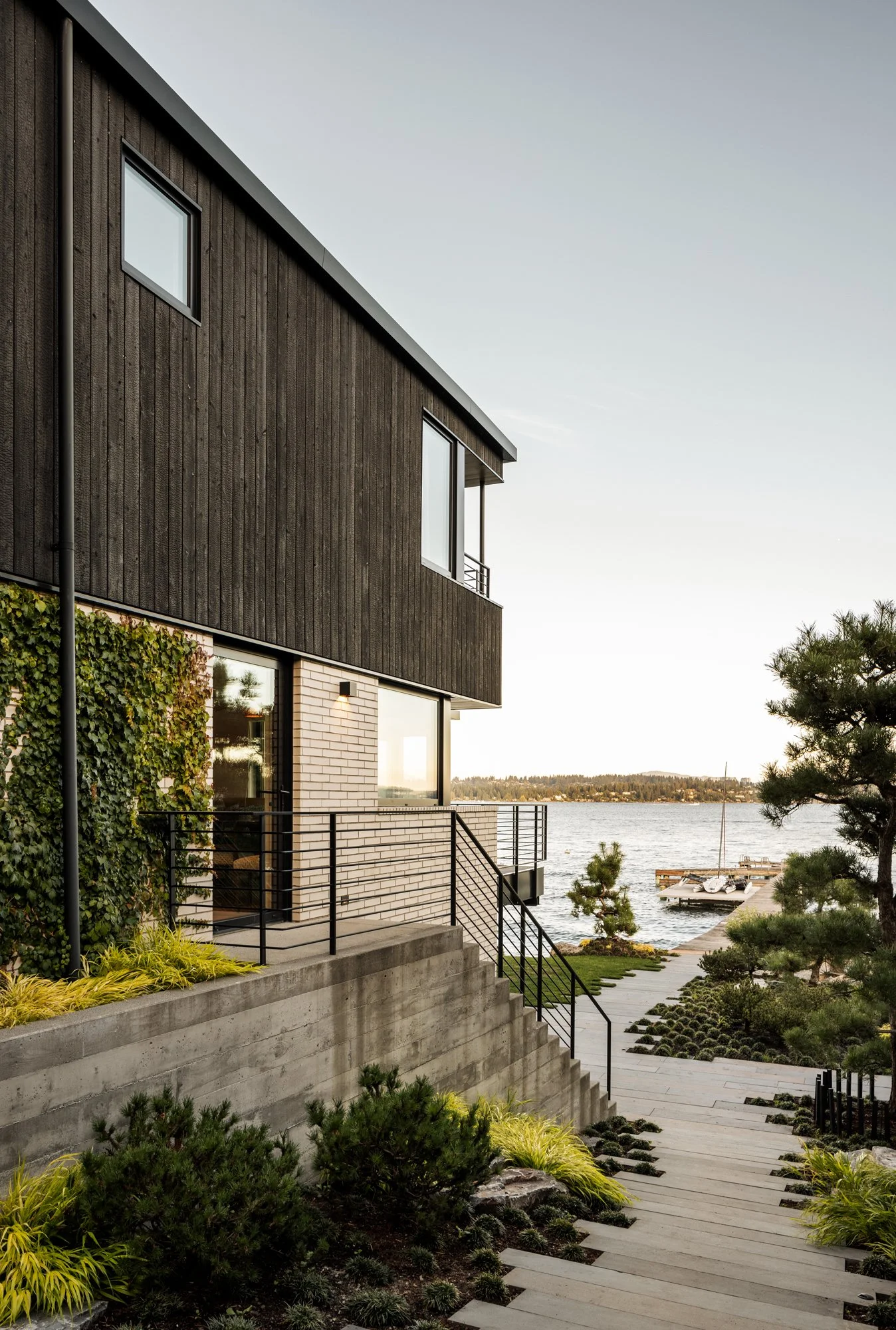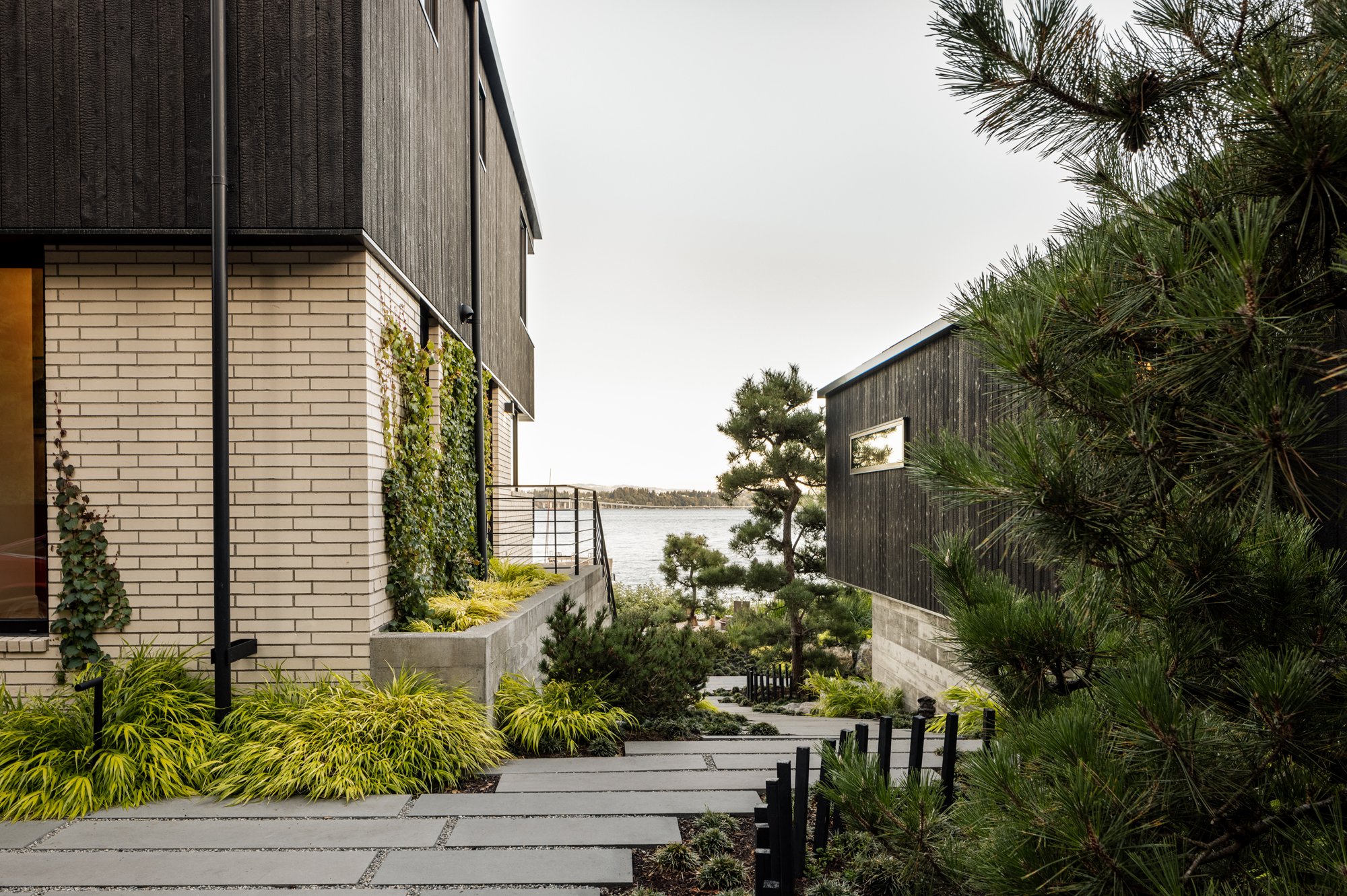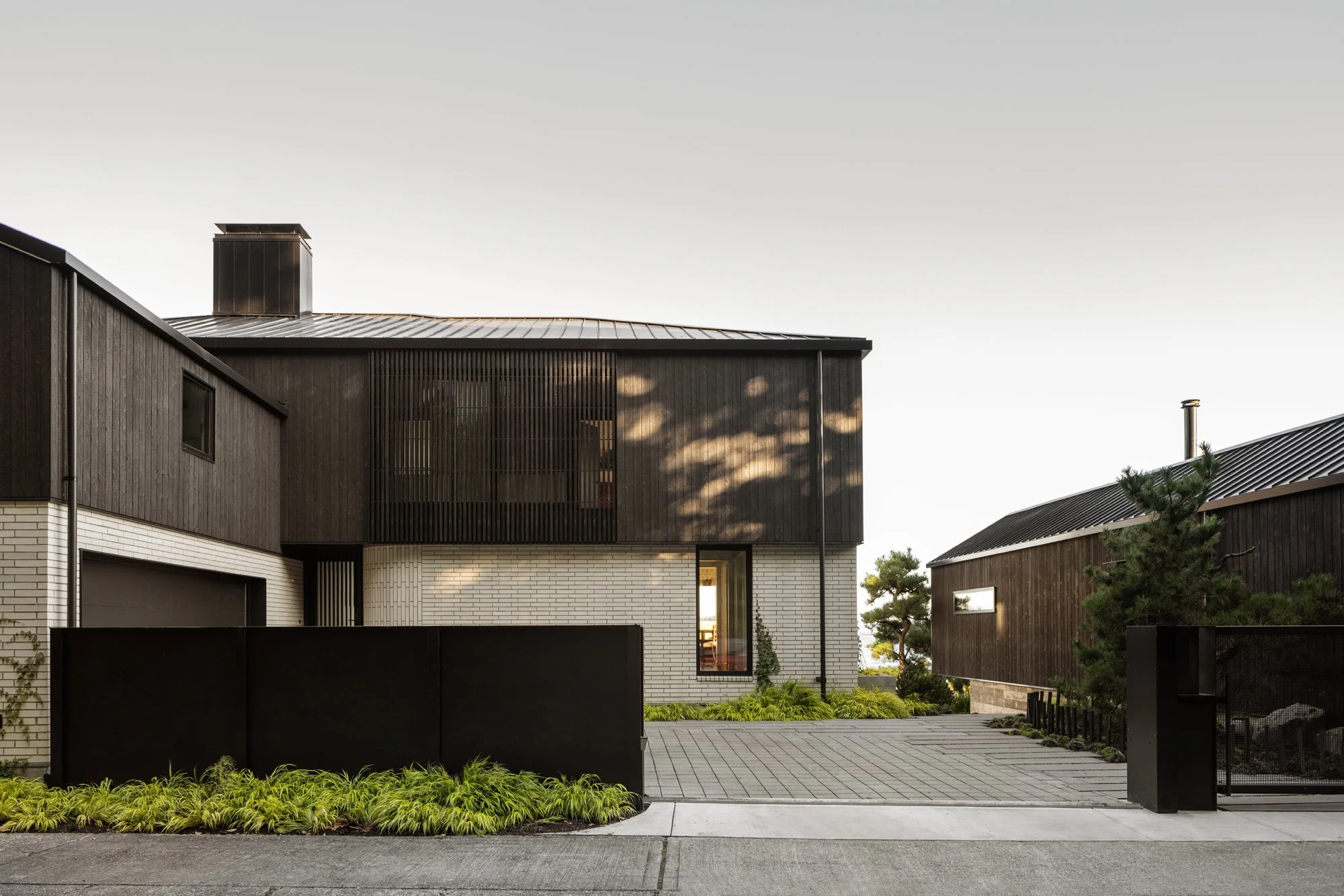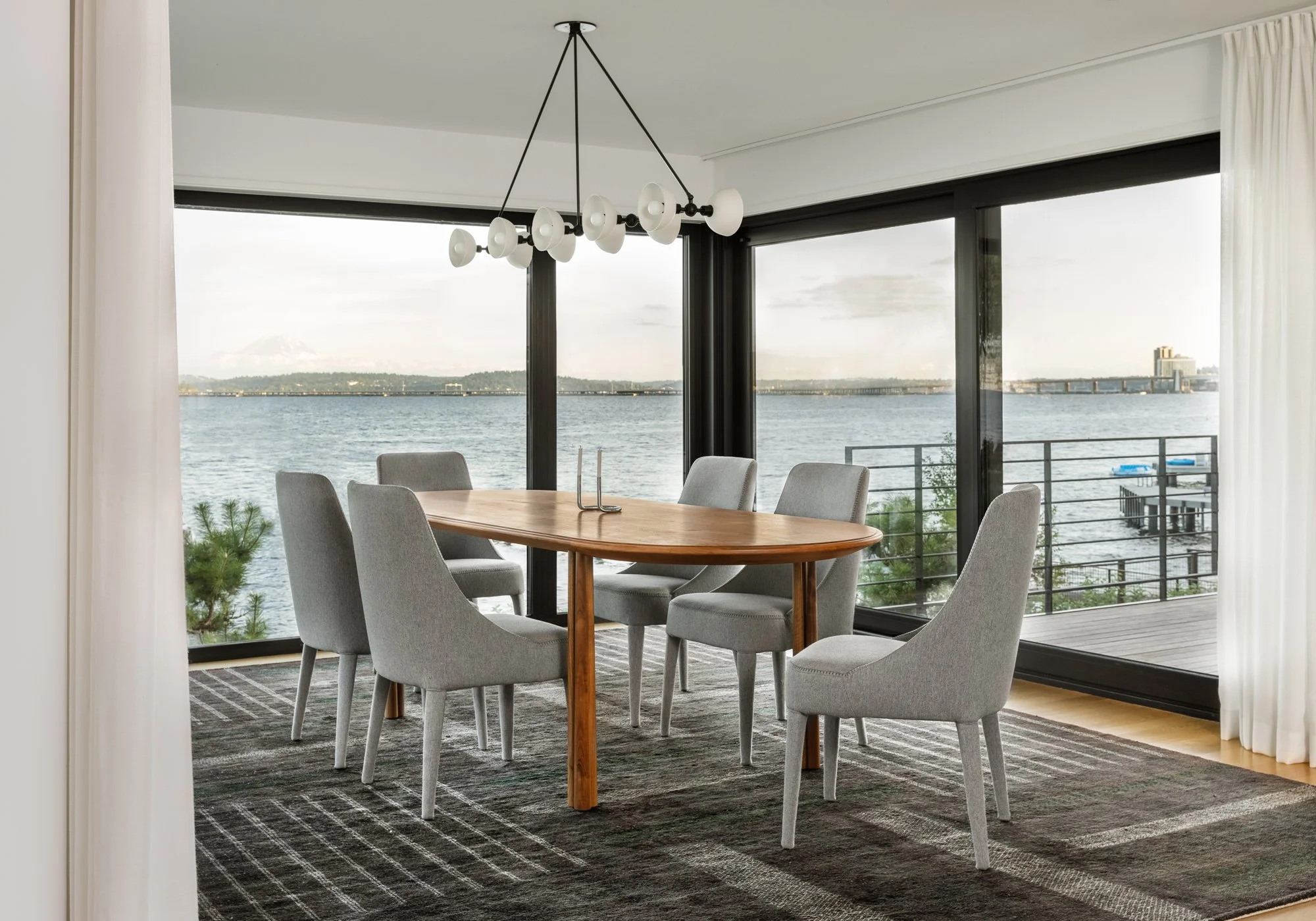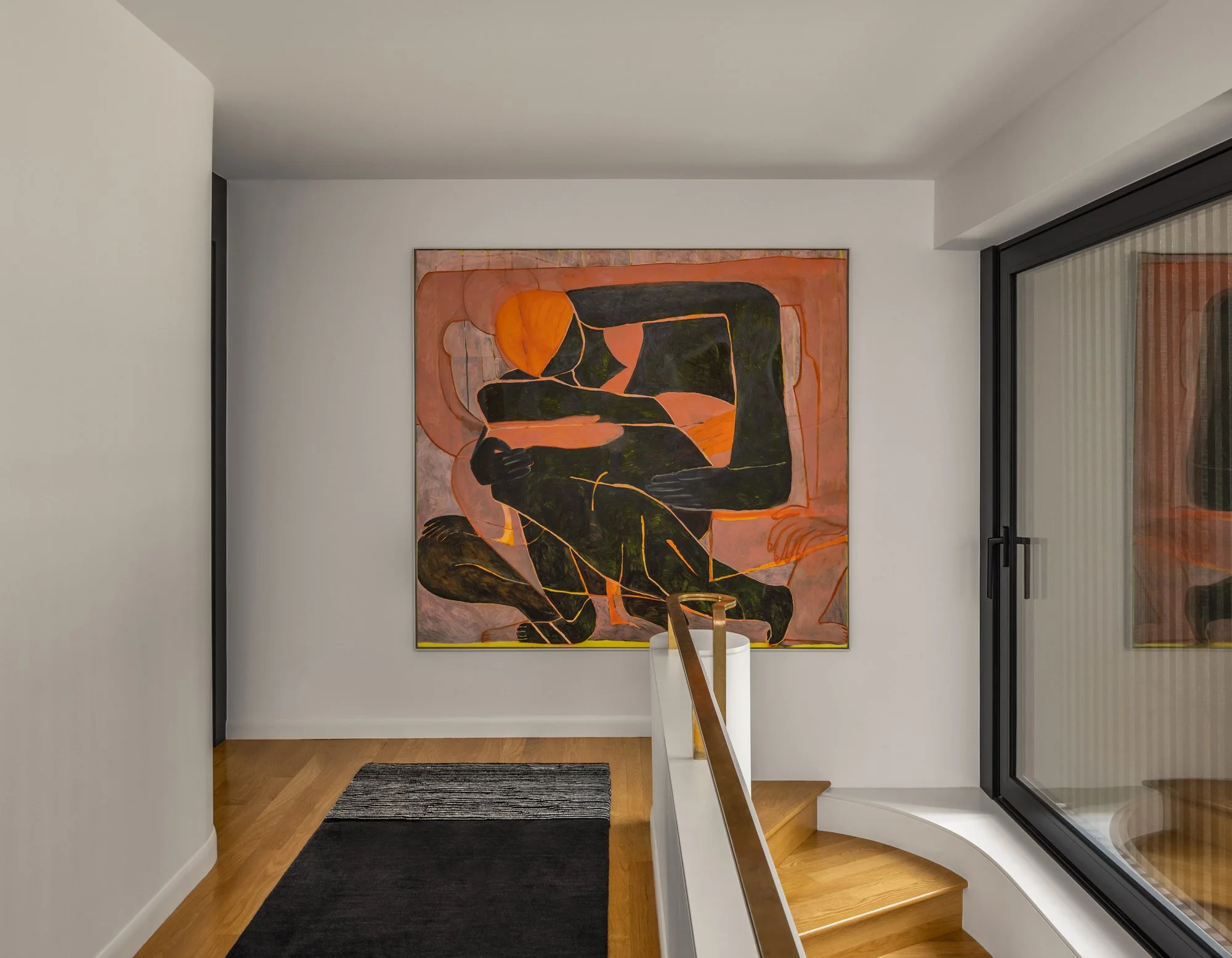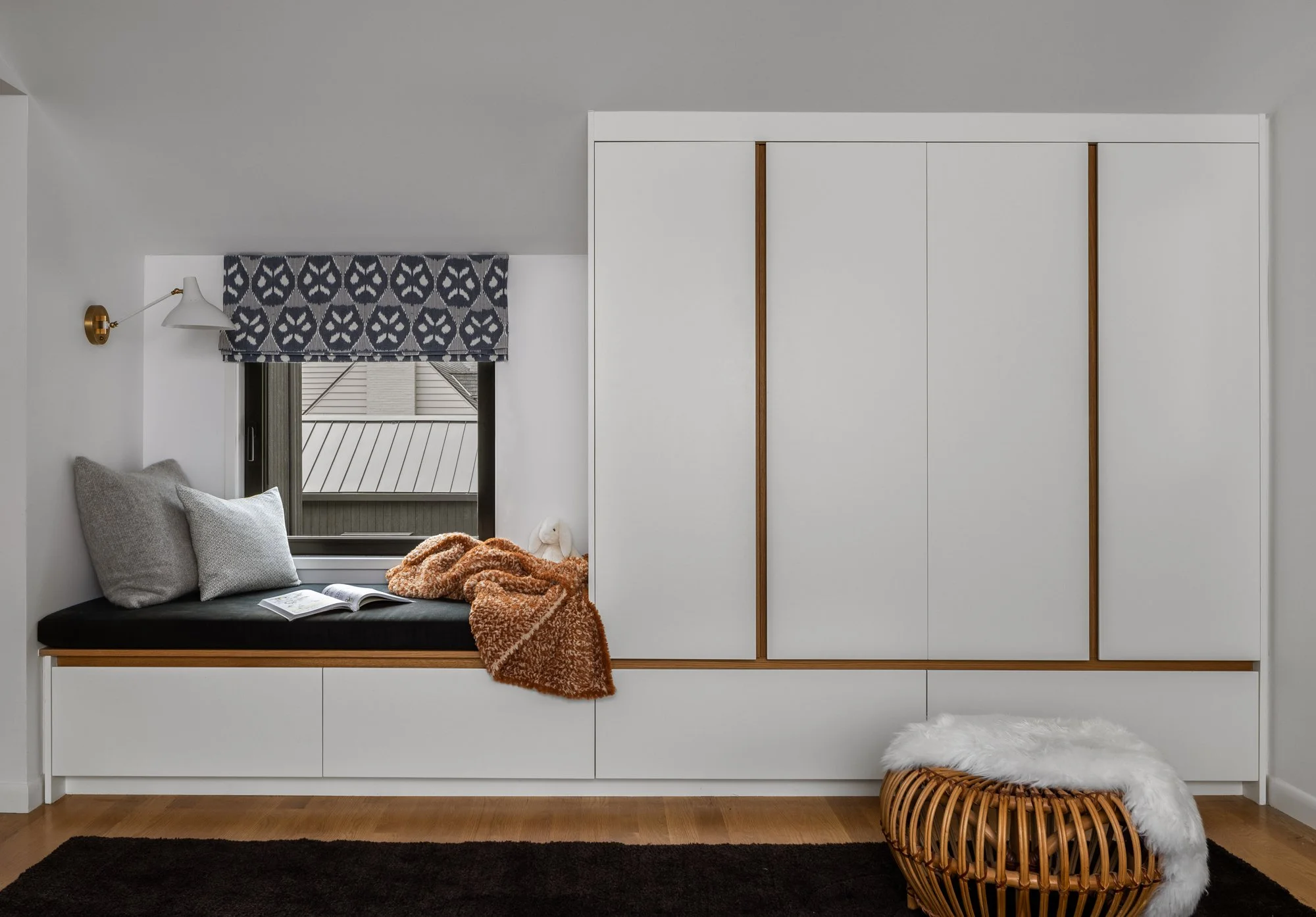BLACK PINE HOUSE
Black Pine House is a lakeside remodel informed by material relationships and attention to detail. Framing existing conditions as opportunities, the team created a coherent family compound on the shores of Lake Washington in which an old and new structure speak to one another and the surrounding landscape.
-
SITE
The main house is integrated into its waterfront setting with the addition of Black Pine Cabin, a separate space for guests and storage. To create room for the new structure, the team demolished an existing carport/garden shed and covered walkway, intentionally setting the cabin apart from the main house to create a connection from the entry to the lake, with the landscape becoming a space that joins them together.
PROGRAM
Honoring the history and sound construction of the home, the owners decided to remodel rather than demolish, requesting an upgrade to the facade, reinforcement of retaining walls, and a general clean-up of the property’s dated design elements. The team’s initial design moves happened on the main level. Replacing a lanai with a dining room facing Mt. Rainier, the team removed all interior walls to create an open living, kitchen, and dining area where the visual connection to the lake is emphasized. Organized around a large, central island aligned with the dining room, the main floor plan allows for free flow of circulation and living throughout. The team added new decks to extend living space outdoors, an elevated perch from which to enjoy the view and survey the landscape. Making small changes to existing walls and plumbing locations, the team reconfigured the upper floors to accommodate en-suite bedrooms for both parents and kids. The basement is entertainment ready with a kitchenette, large living and TV room, laundry room, and a new bathroom—altogether serving as a portal to and from the lake.
DESIGN
A design element of particular note is a custom wooden screen concealing the sliding doors on the interior of the home, creating texture while allowing light to flood in. Additionally, the team designed custom entry doors for the main residence and boathouse that reflect a similar aesthetic.
A limited palette of materials were used on the exterior of the home: brick, burned Japanese cypress, concrete, and metal paneling. The house is formed on white brick walls, anchored to the site, holding up a darker volume clad in shou sugi ban siding—a material echoed on the boathouse that will gain patina with age and result in a beautiful home for years to come. To emulate the feeling of the San Juan Islands, the architects incorporated a sauna, a family-sized cedar hot tub, a firepit, wood storage, an outdoor shower, and a barbecue area into the landscape.Blackened steel plate was used to create a contrasting core and a defined hearth at the center of the boathouse. Behind the plate is a bathroom finished in black milestone with a shower opening up to a large wall-to-wall skylight. In addition, the DADU contains a kitchenette, living room and a work-from-home area. The interior was finished with grain-matched pine cladding and cabinets, custom lighting, and custom garage door brackets in both the boat storage and garage to reduce visual clutter creating a cohesive, polished space.
PERFORMANCE
Tesla battery chargers
Efficient heating and cooling
High-performance GLO windows throughout
PROJECT INFO
Location | Seattle, WA
Project Architect | Aaron Trampush
Architect of Record | SHED Architecture & Design
Contractor | Whelbilt Homes
Structural Engineer | Todd Perbix
Cabinets | Beech Tree Woodworks
Landscape Architect | Alchemie
Landscape Contractor | Ohashi Landscape Services
Interiors | Jennie Gruss
Art Curation | Tim Pfeiffer
Fabricator | Twisted Metal
Windows & Doors | Washington Windows and Doors
Metal Siding, Roofing, Gutters | Vashon Sheet Metal
Siding Contractor | DOM Construction
Shou Sugi Ban Siding | Nakamoto Forestry
Photography | Rafael Soldi
Press | The New York Times



